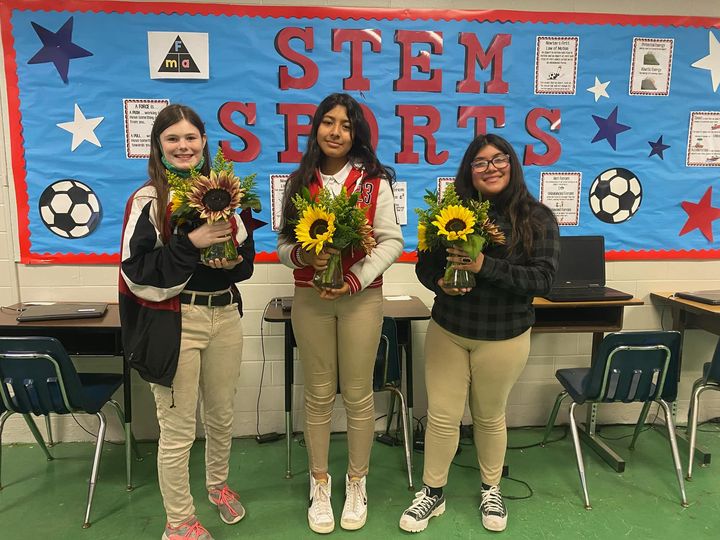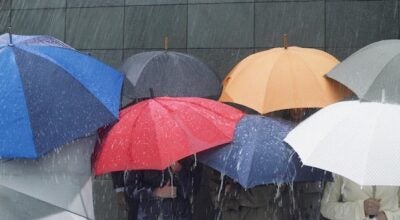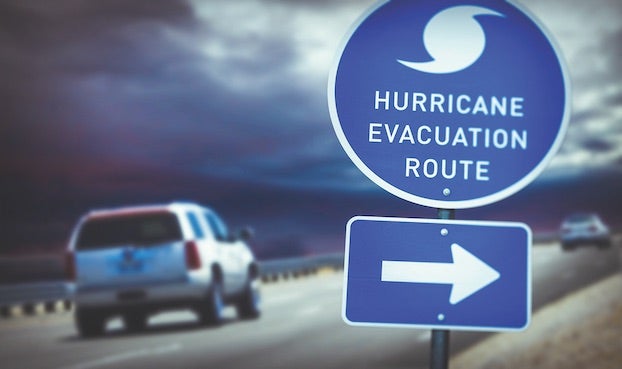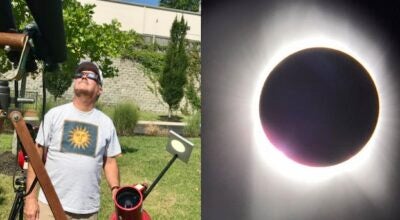F.K. White trio wins ultimate STEM prize, Experiment chosen to go up to International Space Station
Published 5:45 am Monday, June 27, 2022

- An experiment designed by F.K. White Middle School students Edith Evey, Cynthia Caron Chulo and Priscilla Moncada has been chosen to go up to the International Space Station. (Special to the American Press)
By Emily Burleigh
American Press
An experiment designed by three students at F.K. White Middle School has been chosen as the winner of the National Center for Earth and Space Science Education’s Student Spaceflight Experiments Program.
The team is made up of Edith Evey, Cynthia Caron Chulo and Priscilla Moncada and their experiment, “Sunflower Microgravity Growth,” seeks to analyze whether or not sunflower seeds exhibit a difference in growth with microgravity exposure.
“Sunflower microgravity growth is very simple in its nature, yet the impact of what is to be learned from it could have far-reaching effects,” said their teacher, Dana Istre. “The project that the girls will execute is to send a few dozen organic sunflower seeds on board the International Space Station for several weeks.”
Upon return to Earth the students will plant the seeds that were exposed to microgravity along with a control group of seeds that were not exposed in an effort to learn how or if the microgravity will affect growth.
The experiment, part of Mission 16 for the SSEP, is projected to launch this fall.
“The winning experiments are being loaded onto rockets and being transported to the International Space Station as it is in orbit,” Istre explained. “Therefore, projects may contain no more than three volumes that are no greater than 10 ml altogether.”
Istre said the Student Spaceflight Experiments Program website will be frequently updated with countdowns, dates and live links of mission launches.
The students will be notified with details of the launch while coordinating with teacher facilitators and the flight operations manager for the program, Istre said.
After the experiment is conducted, the students will present their findings at the annual SSEP National Conference at the Smithsonian National Air and Space Museum in Washington, D.C.
They will be considered official microgravity researchers, Istre said.
“There were 1,234 submissions nationwide, and these students were selected to be a part of the final 21,” Istre said. “Two other projects were submitted from, F.K. White, including one on the growth of Bacillus Coagulns in microgravity and another on yeast fermentation in microgravity.”
Istre said she and colleague Sandra Hayes were honored to guide the students through this process.
“To be able to participate in a project that can have such meaningful results in the real world outside of the classroom I believe was eye-opening for the students as they saw that they can be valuable assets to their community, even at such a young age,” Istre said. “I feel confident that this project could have a lifelong impact for the winning group.”
Istre said the three students, two of whom are Spanish-speaking, show that “girls in STEM are capable and passionate and will change the world.”
“It was exciting to see the learning happening as the students did research and mini-experiments and worked so hard to complete their projects, but it was most exciting just to be able to bring an opportunity like this to our students.”





